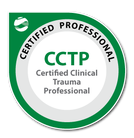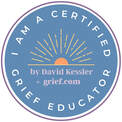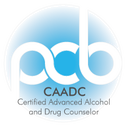|
“Loneliness is proof that your innate search for connection is intact.” -Martha Beck
Last week’s post was about the self-inflicted cage of isolation that people sometimes find themselves in. This is the isolation that is felt because although they may be physically surrounded by people, they do not feel emotionally connected to them. What is blocking the emotional connection and how do people develop the courage to open the door to their cage and reconnect with life? I believe we need to explore the role of the ego. I envision us as people as having two distinct aspects. We have our authentic self and we have the ego. The authentic self is the aspect of us that is genuine and true. Religions call it our soul. When we are acting from our authentic self we feel good about the decisions we make and our actions are in alignment with our core values and beliefs. When we are in our ego we are usually justifying, defending and protecting ourselves from embarrassment or harm of any kind. The ego is fear based thoughts, the authentic self is love based. I envision it as two separate layers with the ego on the outer layer, just like a cage, and the authentic self on the inner. To get beyond the ego layer, the cage door must open which allows us to reach into our authentic self. True connection can only happen at the authentic level. When we interact with someone who is in ego state with their cage door shut, they come across as phony. They are either saying ‘look how great I am’ or the flip side of the ego, ‘look how terrible I am.’ They either boast about what they do, or they are the victim of everything that happens to them. It is difficult to connect with someone who is in an ego state and unfortunately for the person stuck in ego state, they have lost connection with their own authentic self which makes it difficult for them to connect with others. It is almost as if the door to their cage is shut and they have forgotten that they have the key to open it up. When we get stuck in ego, the voice of doubt broadcasts so loud that it drowns out the voice of our authentic self. The ego has no awareness of the authentic self, so once we are completely in the ego state it is like we forgot that we can choose to open the door to connect authentically. It takes a lot of courage for the ego to open that cage door when it is screaming for you to keep it locked tight, but once we open it up it gives us the freedom to authentically connect once again. So, the secret to getting out of the self-inflicted cage of isolation? Recognizing that we are in the cage in the first place and remembering that we can choose to open it up the moment we are ready to truly connect.
0 Comments
“It is strange to be known so universally and yet to be so lonely.” -Albert Einstein
In all counseling theories there is discussion of the importance of connection and healthy relationships with other people. Attachment theory focuses deeply on the innate need humans have for connection and how not having a safe attachment figure leads to various difficulties and even mental illnesses. One of the things that I hear over and over again from many of my clients is how alone and isolated they feel. In this world of billions of people how is it that so many people feel so alone? In his book and Ted Talk, Johann Hari discusses how he believes that a lack of connection is a root cause of addiction. He uses as evidence the famous Rat Park study. In the early research of addiction they put a rat in a cage and presented two bottles of water, one laced with heroin or cocaine and the other one plain. In those experiments all of the rats kept going back to the drug water and eventually overdosed and died. Then an experimenter in the late 1970’s thought about the fact that rats are social creatures and he wanted to see what happens when rats are placed in a social environment. They called it Rat Park and provided a large cage filled with about 20 rats. They had all kinds of things for the rats to play with and explore. When the rats of Rat Park were presented with the same two bottles of water none of them overdosed, none of them died. When I share this study with my clients many of them discuss how they always felt like the ‘black sheep’ of the family or they talk about how they never felt like they truly fit in or belonged with their family or friends. Through their addiction they hurt others, which then lead to even more isolation and stigma. In effect, they describe what living in the cage of isolation feels like. What is going on that so many people, not just people dealing with drug addiction, feel alone even when they are surrounded by people that care about them? I believe that it comes down to how we see ourselves and what we say about ourselves when we look in the mirror. I had one client say to me that he felt that he should have a warning label when he is around others because he believed that if others got too close to him, he would eventually hurt them in some way. For him, he felt it was better to stay isolated then to hurt others, but what he didn’t see was how his choice to stay isolated was also hurting those who cared about him. While we all have an internal critic, for some that voice is so loud and so persistent it is becomes hard for them to believe that they are worthy of love and connection. It is the fear that others will see their unworthiness that creates a separation which cuts them off from connection. That internal programing of self-doubt, insecurity and fear is like a self-inflicted cage. So how do we develop the courage to step out of the cage and into life? I’ll talk more about that next week. “Love is what we were born with. Fear is what we learned here.” -Marianne Williamson
With everything going on in the world right now we have a lot to be fearful of. Are we safe to gather in the streets to celebrate? Are we safe to share our opinions? Are we safe to do our jobs? There are always going to be things to worry about, but for many people the recent events have increased their level of anxiety and worry and have had them questioning what the world is coming to. One of the biggest things that I took away from the first Conversations with God book by Neale Donald Walsch is that there are only two emotions- Love and Fear. He discusses how all of the actions and behaviors of people in the world are stemming from one of these two emotions. Why do people become angry, hateful or vengeful? At the heart of it, it is because they are fearful. They are filled with fear that they are not good enough, strong enough, powerful enough or influential enough. They don’t want anyone to see the fear so they use their power and control to put other people down or to scare them into doing what they want them to do. Fear is defined in Alcoholics Anonymous as False Evidence Appearing Real. Well, right now in the world we have a lot of real evidence. There is no denying that there are some tragic events happening. We have a choice in how we respond to them though. If we allow the events to put us into a place of fear we react in a way to protect ourselves. We see building a wall as a good thing. We believe we are safer if we are carrying a weapon. We stockpile food and build impenetrable shelters. We separate ourselves from ‘those’ people. Is this what we truly want? Most people say they want to have peace and freedom, yet these fears stop us from living in a way that looks even remotely peaceful or free. While these events are real, the truth is that how we view these events can change the way we respond to them. If we choose fear, the events can separate and divide us even farther, but what would love do? From a place of love we can begin to see that the people involved in these events are simply acting out of fear. When we become curious about what they may be fearful of, we begin to see them differently. We become willing to listen instead of isolating and separating from them. I often share with my clients that change only happens when things get so bad we are pushed to do something different or when we become so clear on our vision we are pulled to do something different. These events have the opportunity to do both. Either we will realize that what is happening is so bad, what we are currently doing isn’t working, or we will become so clear that peace is what we want we will begin to open up to love. This is an exciting time in the world- this is our time to be the change! “I am determined to be cheerful and happy in whatever situation I may find myself. For I have learned that the greater part of our misery or unhappiness is determined not by our circumstance but by our disposition.” -Martha Washington
If nothing else, working with people addicted to heroin has given me the opportunity to hear first-hand some of the most difficult life circumstances imaginable. There is not a day that goes by that I don’t listen to their life stories and wonder how I would have handled the situations they found themselves in. They have experienced trauma, abuse, isolation, abandonment, betrayal, homelessness, illness and much more, yet have found ways to cope with these circumstances. They have all survived physically, but many seem to struggle emotionally. Working on their recovery and starting to imagine what life can be like without the very substance that got them through, is sometimes a daunting task. To talk about what would make them happy is often not received well, as they argue that they can’t be happy because of the circumstances they are living in. When I offer an alternative that they can choose to be happy despite their circumstances, I am often met with resistance and told that I just don’t understand how bad their situation is, which justifies to them why they can’t be happy. Realizing that we have the power to choose our emotional state despite our circumstances is a big jump for many people and it took me a long time to truly believe this for myself. We are taught early on that we need things to be happy and we need approval to be happy and we need to be good to be happy. We have been taught that happiness is contingent on getting what we want and we will be happy when we get the house, car, promotion, bills paid off… fill in the blank. We have learned to future-ize our happiness and honestly when we get what we said we wanted we may be happy for a moment until we have the next goal to work towards. Life becomes a big game of getting things, avoiding things and forcing events to happen just as we planned in order to make us happy. We can only be happy when the outer things are in alignment with what we say we want. When things are out of alignment we are frustrated, angry or depressed. The big question I ask my clients is ‘Is it true that you need that to make you happy?’ While most people’s initial reaction is a resounding ‘YES!,’ we talk about it some more and dig deeper into what the truth is. While it is true they may prefer to have different circumstances we discuss how the circumstances themselves do not create their emotion. It is their thinking about the circumstances that creates the emotion. We are free in this moment to choose our thoughts. We can choose to think about things that have made us happy, to be grateful for what we have been able to experience, to give thanks for the life we currently have. We give thanks to the body that is breathing without a machine, to the legs that walk without devices to the hands that are able to grasp objects, to the mind that is able to think, for the family members who have supported them, for the shelter that provides protection, for the food that nourishes them. Once they truly begin to feel happy and grateful for what they have, there is a moment where they do realize that it is within their power to choose to be happy right now, despite their circumstances. If they can do it for a minute in the office, what is stopping them from doing it at home? Once they truly get that the outer circumstances don’t have the power to determine their happiness, they are free to be happy despite their circumstances. This is a liberating realization! “We don’t see things as they are, we see them as we are.” Anais Nin
I was working with a client today who had been doing very well in treatment and had abstained from using for over a month, but just a few nights ago she wasn’t feel well and other people in her home were smoking marijuana, so she decided to join them. When she met with me she was embarrassed as she admitted to what she had done. She verbally beat herself up for a few minutes and discussed how she was weak and it smelled so good, but then said, ‘You know what, I didn’t screw things up forever, I just need to walk away next time!’ There was a definite shift in her energy in that moment and we talked about how she suddenly took on a different perspective. It is very easy to take on a negative perspective. Society seems to reinforce it for the most part, just watch the news for a few minutes. When we talk about how bad something is or what went wrong everyone seems to jump in and share their version of why. While it is sometimes helpful to explore what went wrong in order to correct it for the future, we tend to hang out in what went wrong for much longer then necessary. I often use the analogy of how seeing things from a negative perspective is like being stuck in the basement of a skyscraper. It is pretty dark and closed in. If we are able to pull ourselves up to the first or second floor at least there is some light, but there is still not much to see. When we rise up to the 30th floor the view is spectacular and breathtaking. We see things we could never have seen from the lower floors. Now, according to the GPS we are in the exact same location. It is only our perspective that has changed. When I talk to clients I discuss how some of their thinking is basement thinking. They are beating themselves up for the past mistakes and not allowing the light to even get close to them. When I was working with my client today nothing changed in the circumstances of her life from the time she started talking with me to the time she left, but her perspective about what happened completely changed. When we operate from a negative perspective we feel drained and worn down, like the world is conspiring against us. It isn’t easy to change our perspective, but by opening ourselves up to inquire what we can learn from this situation we can begin to climb up a few flights of stairs. How different would this situation look if you were just one floor higher? |
Archives
April 2020
Categories
All
|
 RSS Feed
RSS Feed




